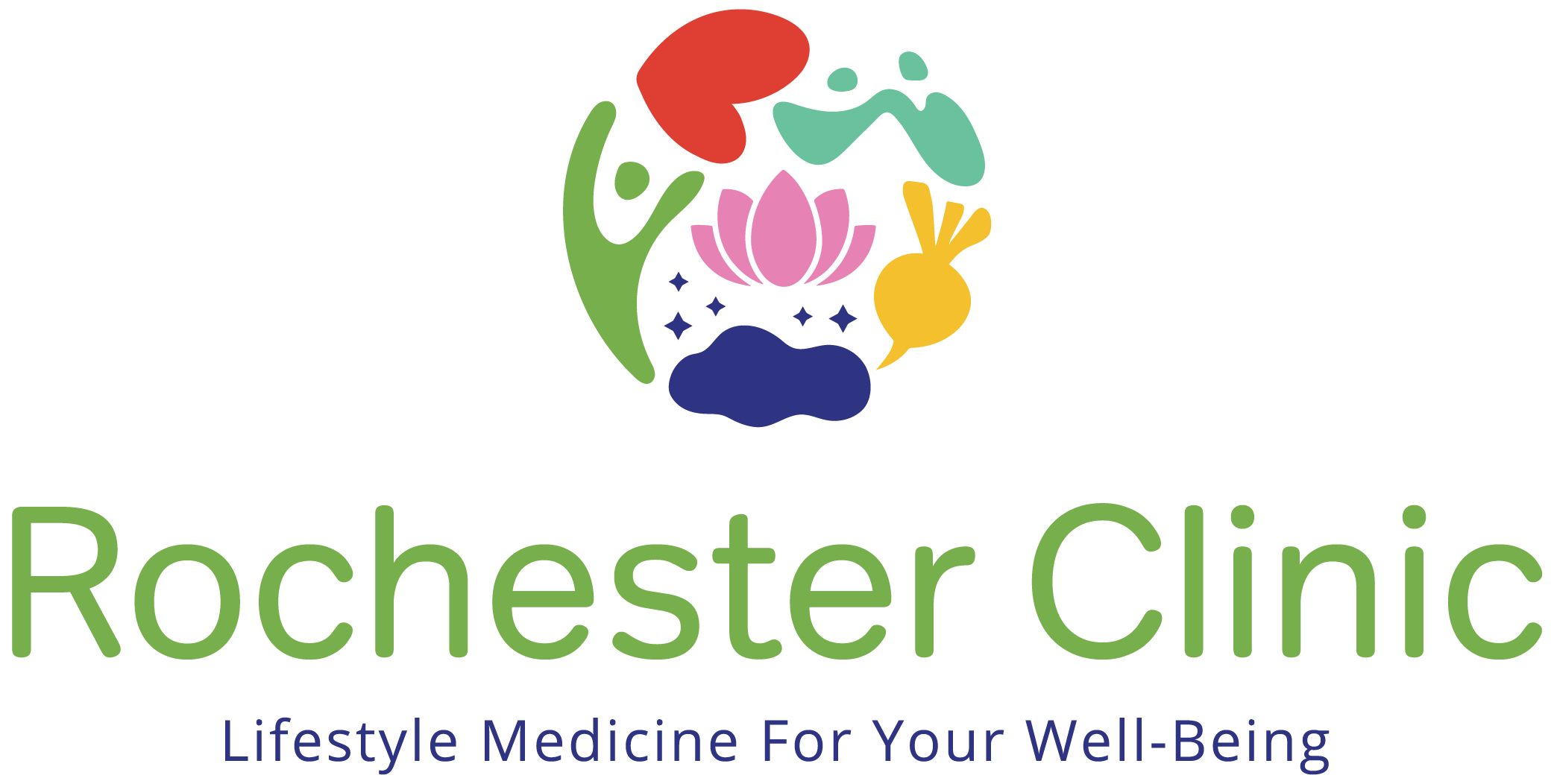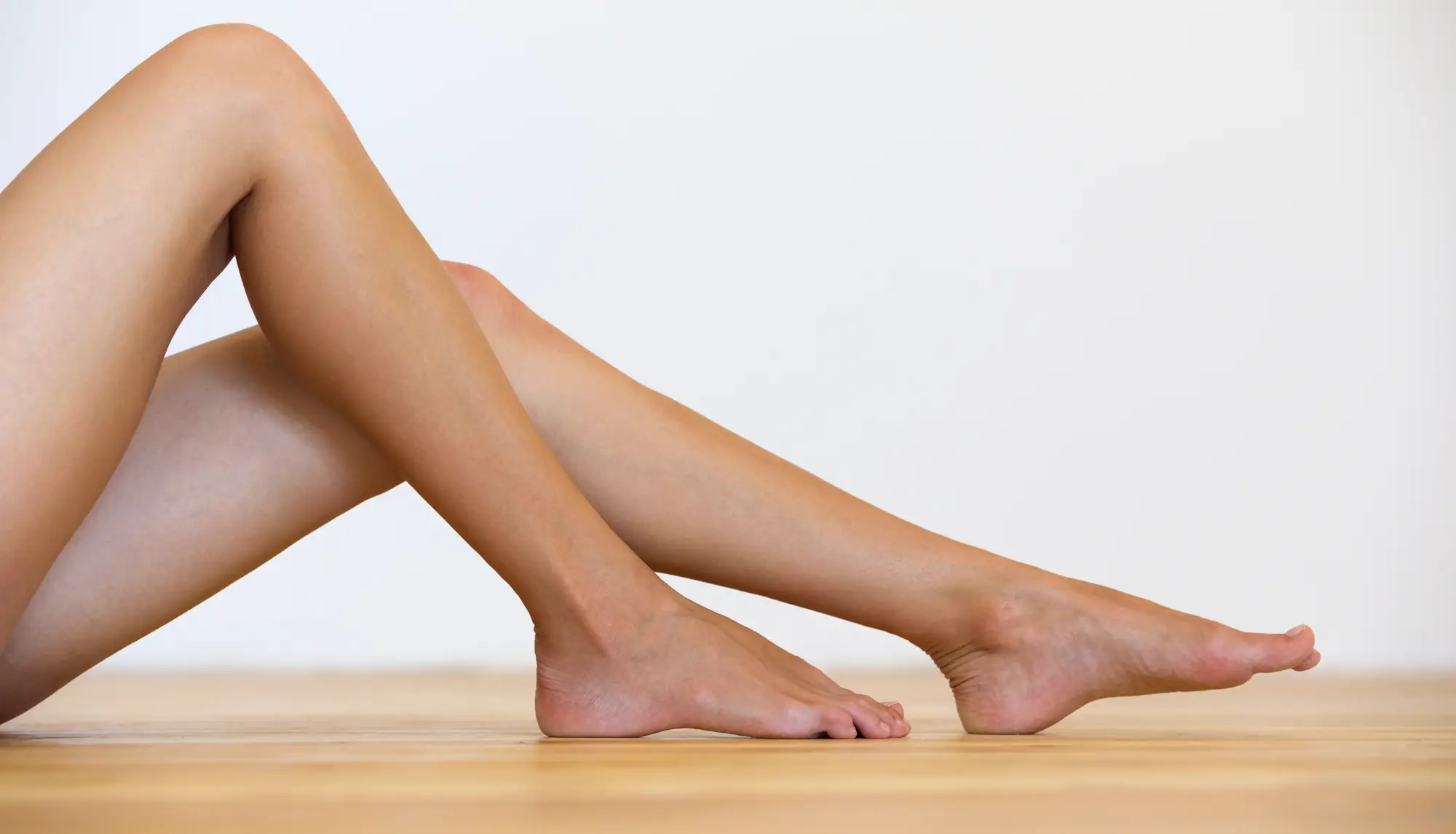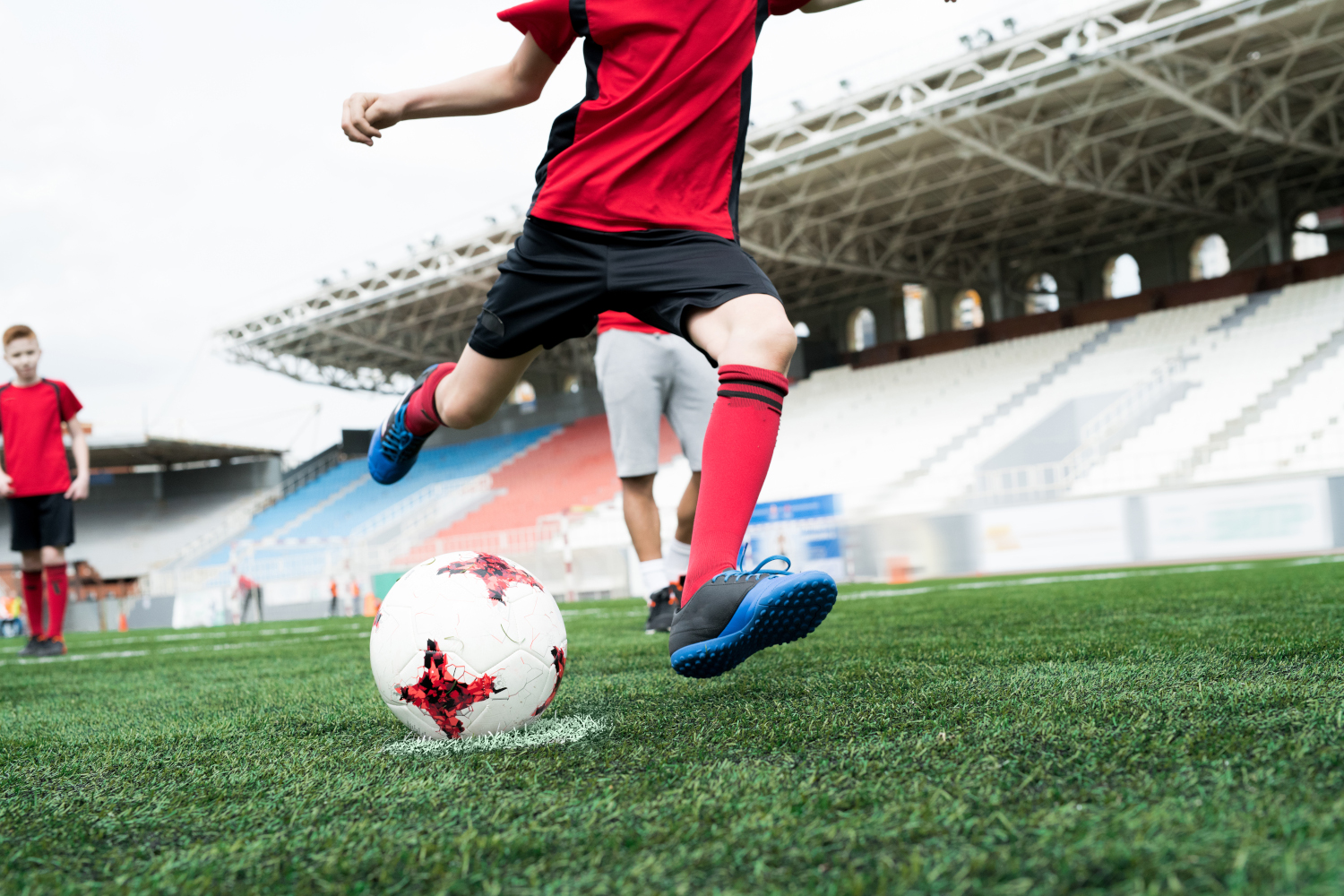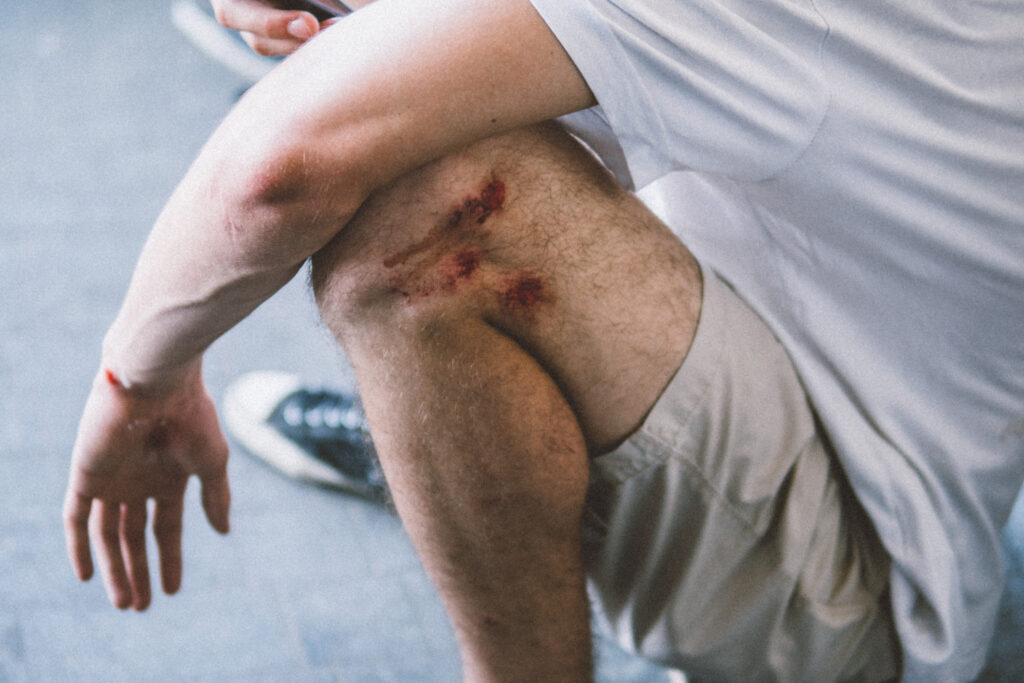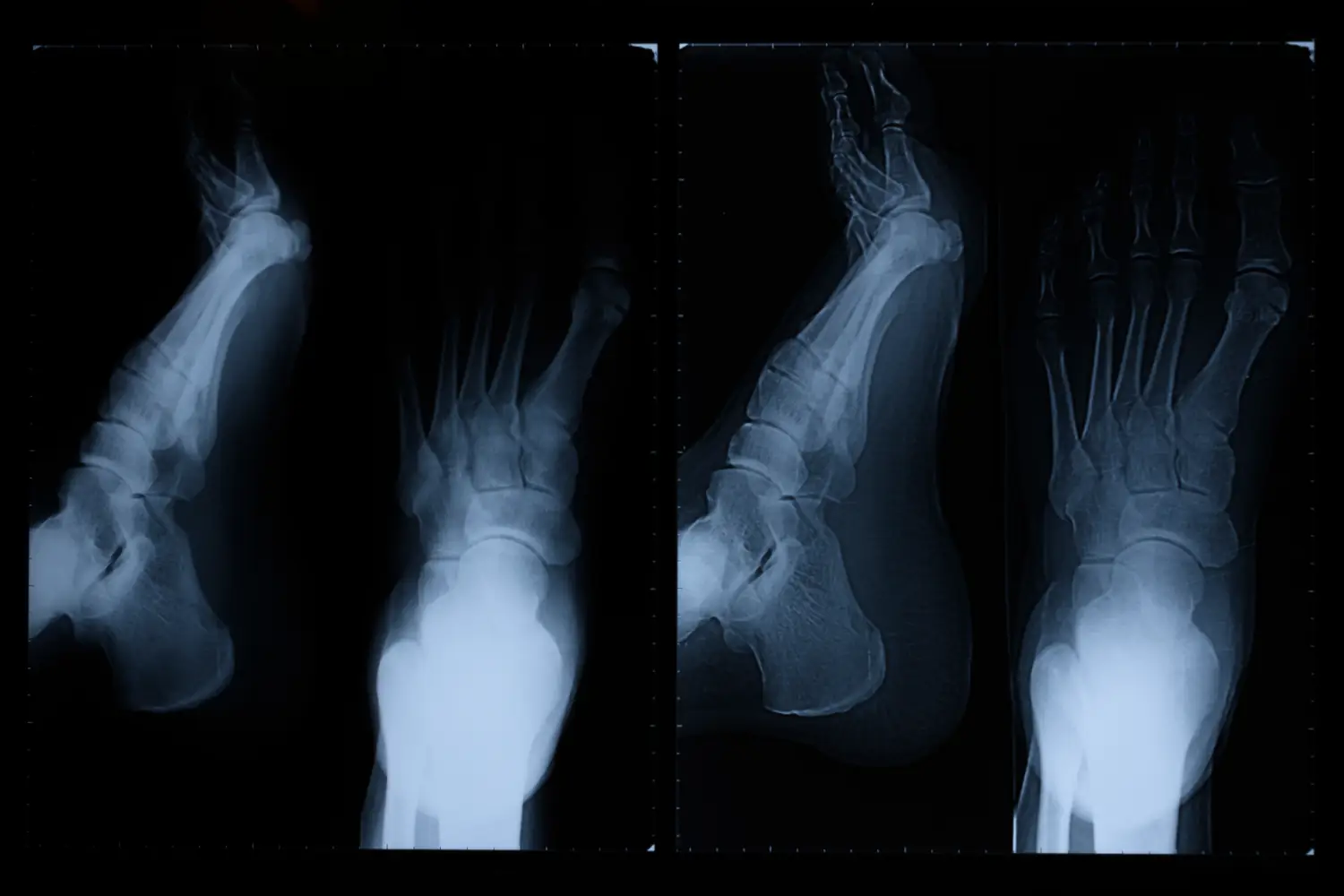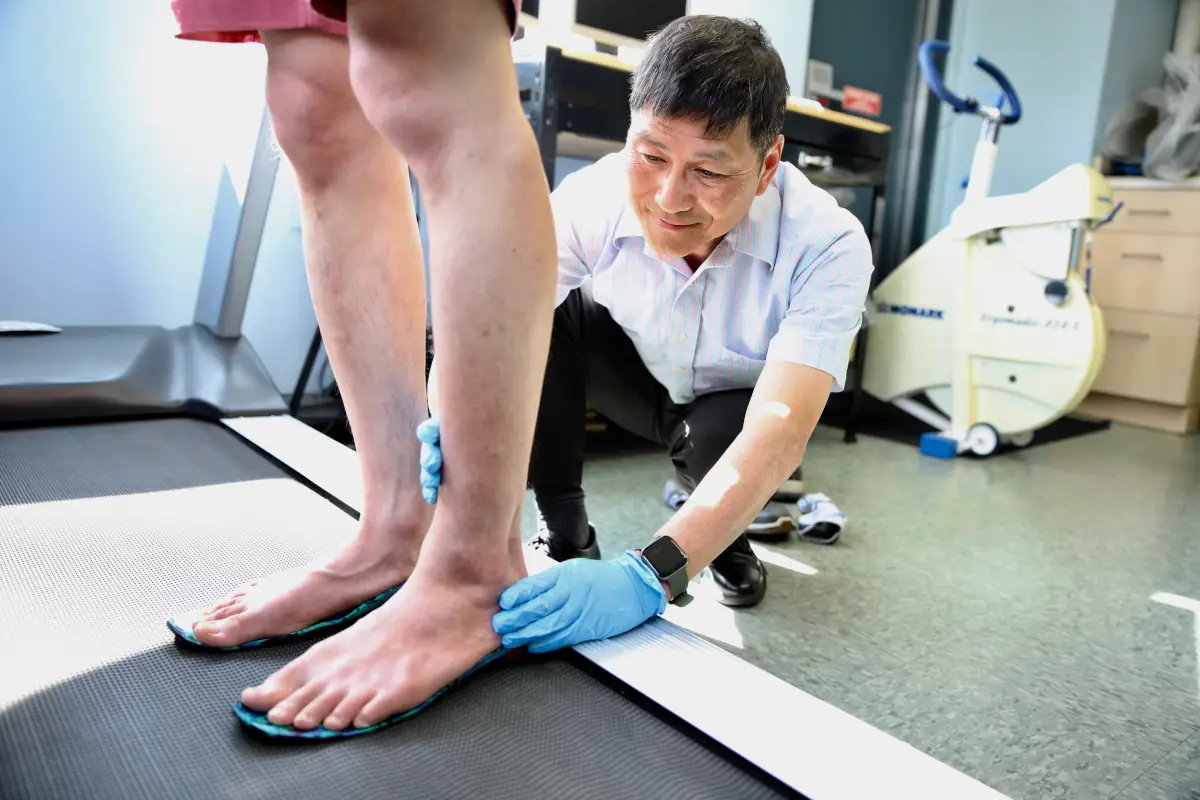
Podiatric Medicine
Podiatric medicine is the study of the lower extremity. Our doctors have unique and specific training in disorders of the foot, ankle and lower leg. These skills are used to provide a thorough clinical evaluation and treatment plan. Your concern may be sore feet, conditions affecting muscles, joints, bones, circulation, skin conditions of the lower legs, neurological disease, injuries, and balance or walking disorders.
Our practice reaches out into community to include podogeriatrics, the treatment of foot problems of the elderly. We also have a special interest in sports medicine, diabetic foot conditions, and wound care.
Optimizing Lower Limb Health: An Integrated Functional–Regenerative Lifestyle Medicine Approach
Lower limb health plays a foundational role in mobility, independence, and overall quality of life. The feet and ankles support the body with every step, transmitting forces upward through the knees, hips, and spine. When dysfunction occurs in the lower extremities, whether from pain, injury, metabolic disease, or chronic inflammation, it can affect the entire body.
At Rochester Clinic, we use an Integrated Functional–Regenerative Lifestyle Medicine model to address lower limb conditions comprehensively with root cause foot and ankle evaluation. This approach is structured around four interconnected layers that are applied intentionally, based on each patient’s condition and needs.
Lifestyle Medicine — The Healing Foundation
Lifestyle medicine is always present in our care model. It creates the biological and environmental terrain necessary for healing and long-term resilience.
We focus on the core pillars of health:
- Whole-food, plant-based nutrition and avoidance of risky substances
- Regular physical activity and movement quality
- Stress management and nervous system balance
- Restful, restorative sleep
- Social connection and emotional well-being
- Purpose, passion, and engagement in life
These factors directly influence inflammation, circulation, immune function, metabolism, and tissue repair. Without a supportive lifestyle foundation, healing is often incomplete or short-lived.
Functional Medicine — Root-Cause Diagnostics
Functional medicine is applied to clarify the underlying drivers of lower limb conditions when symptoms suggest systemic contributors. This includes a root cause foot and ankle evaluation that looks beyond localized pain to identify metabolic, inflammatory, hormonal, or nutritional factors influencing healing and tissue resilience.
Chronic pain, slow healing, recurrent injuries, or degenerative changes may be influenced by:
- Metabolic dysfunction (e.g., insulin resistance, diabetes)
- Chronic inflammation
- Hormonal imbalance
- Nutrient deficiencies
- Microbiome disruption
- Impaired circulation or immune response
Through comprehensive clinical evaluation and targeted laboratory testing, we identify what is interfering with the body’s natural repair processes. This insight allows us to personalize nutrition, supplementation, and lifestyle strategies with precision.
Biomechanical Medicine — Applied When Structure and Movement Matter
Biomechanical medicine is emphasized in musculoskeletal and pain-related conditions, where structure, alignment, and movement patterns directly contribute to tissue stress and injury. A comprehensive root cause foot and ankle evaluation allows us to identify faulty mechanics, compensations, and load patterns that may be driving both local and upstream symptoms.
The foot and ankle form the mechanical foundation of the body. Abnormal gait mechanics, joint restrictions, muscle imbalances, or repetitive overload can lead to conditions such as plantar fasciitis, arthritis, tendon disorders, corns, calluses, and chronic pain. These issues may also contribute to problems in the knees, hips, and lower back.
Our biomechanical assessment includes:
- Gait observation and analysis
- Joint and soft-tissue evaluation
- Foot structure and pressure distribution assessment
- Footwear and activity review
Interventions may include custom foot orthoses, shoe modifications, targeted exercises, and movement retraining to restore efficient load distribution and reduce tissue strain.
In primarily metabolic conditions, such as diabetes, biomechanical assessment may be applied preventively, for example to reduce the risk of diabetic foot ulcers or repetitive skin breakdown.
Regenerative Medicine — Repair and Restoration
Regenerative medicine is applied when tissue or function needs to be restored. It works synergistically with lifestyle, functional, and biomechanical care to accelerate healing and recovery.
Modalities may include:
- Class IV laser therapy to enhance circulation, reduce inflammation, and stimulate cellular repair
- Platelet-Rich Plasma (PRP) therapy, utilizing the patient’s own growth factors to support tissue healing and regeneration
- Stem cell–based therapies, where appropriate, to support repair of damaged or degenerative tissues
- Targeted nutraceuticals and peptide therapies to promote collagen synthesis, mitochondrial function, and tissue resilience
These therapies are selected based on clinical appropriateness and are integrated with foundational care to support the body’s intrinsic capacity for regeneration.
An Integrated Path to Mobility and Vitality
Lower extremity conditions rarely have a single cause or a single solution. By intentionally integrating lifestyle medicine, functional diagnostics, biomechanical assessment, and regenerative therapies, we address both symptoms and root causes.
This structured, patient-centered approach empowers individuals to participate actively in their healing, supports long-term mobility, and promotes durable musculoskeletal health. Our goal is not just pain relief—but restored function, resilience, and vitality from the ground up.
Conditions We Treat Using a Holistic Approach
Through a holistic approach, our podiatric medicine services include regular foot and ankle care, foot and ankle injuries, trauma and infection, diabetic foot care, and a diabetic shoe program and second opinions. To see the different conditions we can treat, hover of the different areas below.
Our Collaborative Efforts Used
Below you will find our collaborative efforts we use here at the Rochester Clinic to help treat specific conditions within our podiatry practice. Click on any service below to learn more about that specific treatment.
Our Process
Treatment
Wound care, prescription drugs, surgery, manipulation, massage, physical therapy, and exercise programs are used in your care. Also available are products such as orthotic devices, custom foot wear, protective padding, braces, splints, removable casts, and other supports.
Follow Up
Because foot problems may be signs of general illnesses, such as diabetes or heart trouble, podiatrists routinely refer these findings to the primary physician for treatment.
Preventative Care
Today’s state of the art medicine brings us to a new level beyond good care. We practice preventative medicine that identifies probable or incipient conditions before problems occur or at an early stage…

Meet Dr. Jengyu Lai
DPM, DipABLM. Your Podiatrist
Jengyu Lai is a certified wound specialist of the Council for Medical Education and Training is the Chief Manager of Rochester Clinic and has been providing podiatric and wound care for almost two decades.
He is dedicated to operating Rochester Clinic as a source of comprehensive and high quality care, and takes pride in providing patients with a personalized and friendly experience.
Customer Testimonials
“Dr. Harman is the most professional, empathetic, informative, and personable person I have encountered in my 62 years. I would trust him with my life as well as that of my family. He is the best!”
“They have all been very helpful and very nice. I don’t feel like I am being judged by anyone for my illness and I greatly appreciate that. Thank you.”
“They helped me get my life back without controlling every aspect of my life. Without this facility I’m not sure where I would be right now.”
